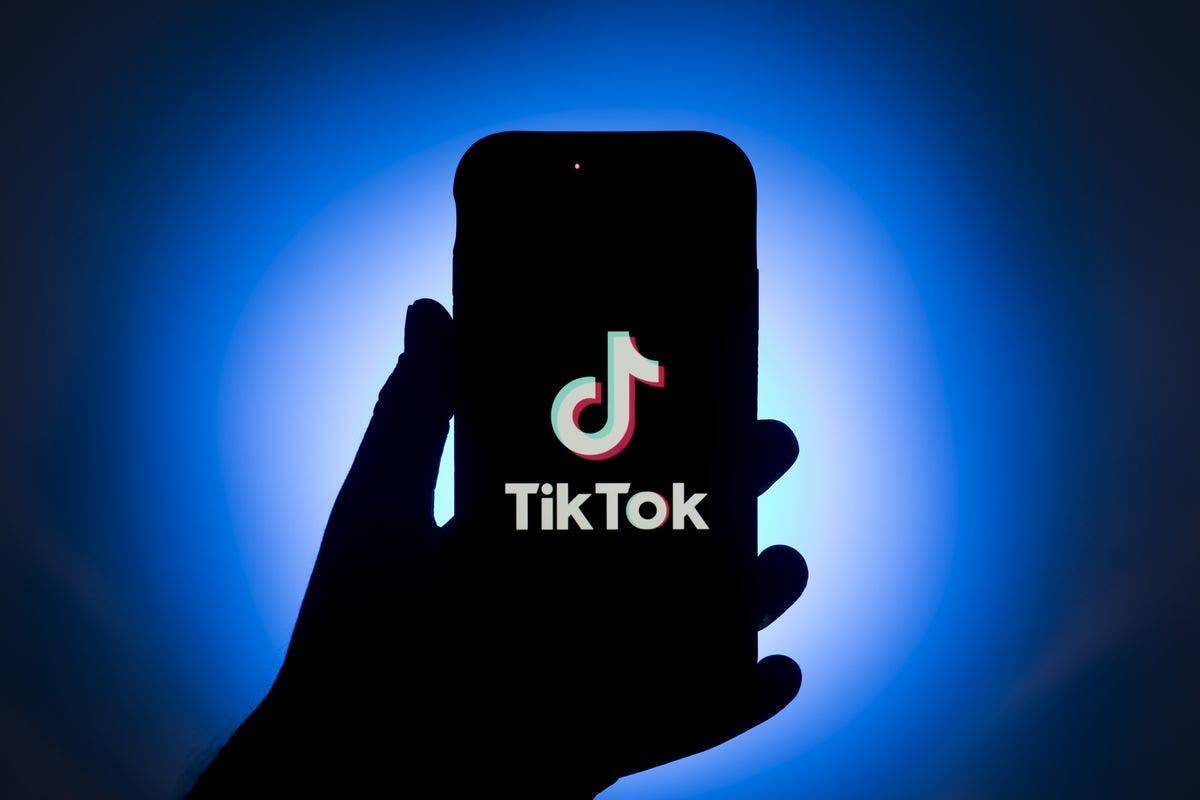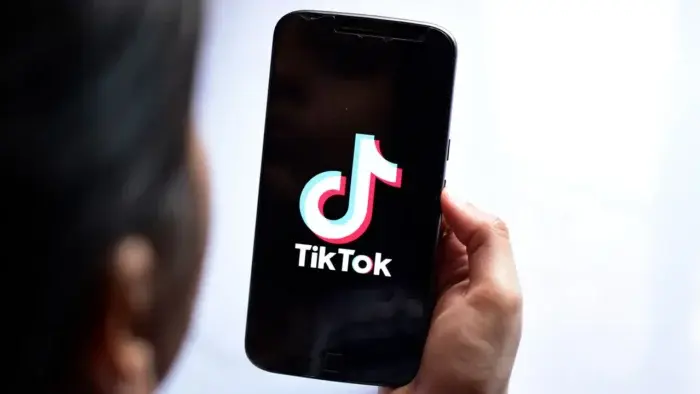The future of TikTok in the United States hangs in the balance after the US Senate passed the National Security Package. This legislation, which includes a provision with the potential to ban the popular video-sharing app, now awaits President Biden’s signature. He has previously indicated his support for the bill, setting the stage for a critical decision by TikTok’s parent company, ByteDance.
The Looming Choice for TikTok: Divestiture or Departure from the US Market

The Divestiture or Ban Dilemma
The National Security Package presents ByteDance with a stark ultimatum: divest its ownership of TikTok to a US-based company within one year or face a ban on the app‘s operation within US borders. This decision has significant implications for both TikTok and the American social media landscape.
TikTok’s Opposition: Free Speech and User Base
TikTok has mounted a fervent campaign against the potential ban. The company argues that such a move would constitute a violation of the free speech rights of its 170 million American users. They contend that the platform is a space for creative expression and community building, valued by millions of Americans.
National Security Concerns: A Bipartisan Issue
However, the US government’s concerns regarding TikTok extend beyond potential censorship. Lawmakers, from both Republican and Democratic parties, have expressed anxieties about national security risks associated with the app’s Chinese ownership.
These concerns are three-fold:
- Data Security: There are apprehensions that user data collected by TikTok could be accessed by the Chinese government. This data could include personal information, browsing habits, and potentially even sensitive content.
- Propaganda and Censorship: Concerns exist that the Chinese government could manipulate content on TikTok to propagate its agenda or suppress views critical of the CCP.
- Foreign Adversary Influence: Lawmakers worry that TikTok could be exploited by the Chinese government to influence American public opinion, potentially during elections or on sensitive geopolitical issues.
The Debate: Balancing Security and Freedom
The potential ban of TikTok has ignited a heated debate in the United States. Proponents of the ban prioritize the protection of national security and user data. They argue that the potential risks outweigh the social and entertainment benefits offered by the app.
Opponents of the ban express anxieties about the erosion of free speech and the chilling effect on online discourse. They also highlight the potential economic impact of a ban, including the loss of jobs for American employees at TikTok and the disruption to millions of users invested in the platform.
The Global Context: A Precedent for Other Countries?
The US move against TikTok is part of a broader trend of heightened scrutiny towards Chinese tech companies in the West. Similar concerns about data security and potential government influence have led to bans or restrictions on Chinese tech products in other countries, such as India and Australia.
If the US ban on TikTok goes into effect, it could set a precedent and trigger similar actions by other countries grappling with the growing influence of Chinese technology in their digital landscape.
The Road Ahead: Negotiations or Legal Challenges?
ByteDance now faces a critical decision. The company could choose to negotiate with potential US buyers for TikTok in an attempt to comply with the divestiture requirement.
Alternatively, they could challenge the legislation in court, arguing that it violates free speech principles and unfairly targets their company. However, the success of such a legal challenge is uncertain.

The Potential Impact on the US Tech Industry
The potential ban of TikTok would create a significant void in the US social media landscape. However, it could also create new opportunities for American tech companies to develop and launch competing platforms.
Gizchina News of the week
This could lead to a more diversified social media ecosystem within the US, potentially fostering greater innovation and competition.
The Unforeseen Consequences: A Broader Trade Contention?
Furthermore, a ban on TikTok could exacerbate existing trade tensions between the US and China. The Chinese government has already voiced its opposition to the potential ban, and retaliatory actions against US tech companies operating in China cannot be ruled out.
The potential economic and political ramifications of such a scenario need to be carefully considered by policymakers on both sides.
A Call for a Measured Approach
The impending decision regarding TikTok’s future in the US underscores the complex challenges arising from the interconnectedness of the globalized digital world. Finding a solution that balances national security concerns with the protection of free speech and the right to access information will require a measured approach.
Open communication and collaboration between governments, technology companies, and civil society organizations are critical to navigate these challenges and ensure a sustainable future for the digital ecosystem.
The Potential Impact on Content Creators and Users
The potential ban of TikTok would not only impact the company and the tech industry. But also have significant consequences for content creators and users who rely on the platform.
- Content Creators: Millions of creators, both professional and amateur, have built audiences and careers on TikTok. A ban would force them to migrate to other platforms, potentially starting from scratch. This could lead to a loss of income and a disruption to their creative communities.
- User Base: For many users, particularly younger generations, TikTok has become an integral part of their online experience. A ban would disrupt their online routines and force them to find alternative platforms to connect with friends, discover new content, and express themselves creatively.
- Shifting Landscape: The departure of TikTok could lead to a consolidation of power among existing social media giants like Meta (Facebook and Instagram) and Alphabet (YouTube). This could stifle innovation and limit user choice in the social media landscape.
The Rise of Alternative Platforms
The potential ban of TikTok is likely to accelerate the development and adoption of alternative platforms. This could create opportunities for new players to emerge and cater to the large user base seeking a similar experience.
However, these alternative platforms would need to overcome several challenges:
- Replicating the Algorithm: TikTok’s success can be attributed in part to its highly effective recommendation algorithm. New platforms would need to develop sophisticated algorithms to keep users engaged and compete with established players.
- Building User Trust: In the wake of concerns surrounding TikTok, users might be more cautious about trusting new platforms with their data. New entrants would need to establish robust privacy and security measures to gain user trust.
The Challenge of Content Moderation
The content moderation challenges faced by TikTok would likely be replicated on any new platforms that emerge. Platforms will need to strike a balance between allowing for creative expression and preventing the spread of harmful content like misinformation and hate speech.
The Need for Regulation and Cooperation
The potential ban of TikTok highlights the need for a comprehensive regulatory framework for social media platforms, both domestic and foreign. This framework should address issues such as data security, content moderation, and potential foreign influence.
Furthermore, international cooperation between governments and tech companies is necessary to ensure a safe and secure digital ecosystem that fosters innovation while mitigating potential national security risks.
Conclusion: A Complex Issue with No Easy Answers
The potential ban of TikTok is a complex issue with no easy answers. It raises concerns about national security, free speech, and the future of the social media landscape. While the decision ultimately rests with ByteDance, the potential ramifications extend far beyond the company itself.
A measured approach that considers the needs of all stakeholders – from governments and tech companies to content creators and users – is necessary to navigate this complex situation. Only through open dialogue and collaborative efforts can we ensure a digital future that is both secure and innovative.





